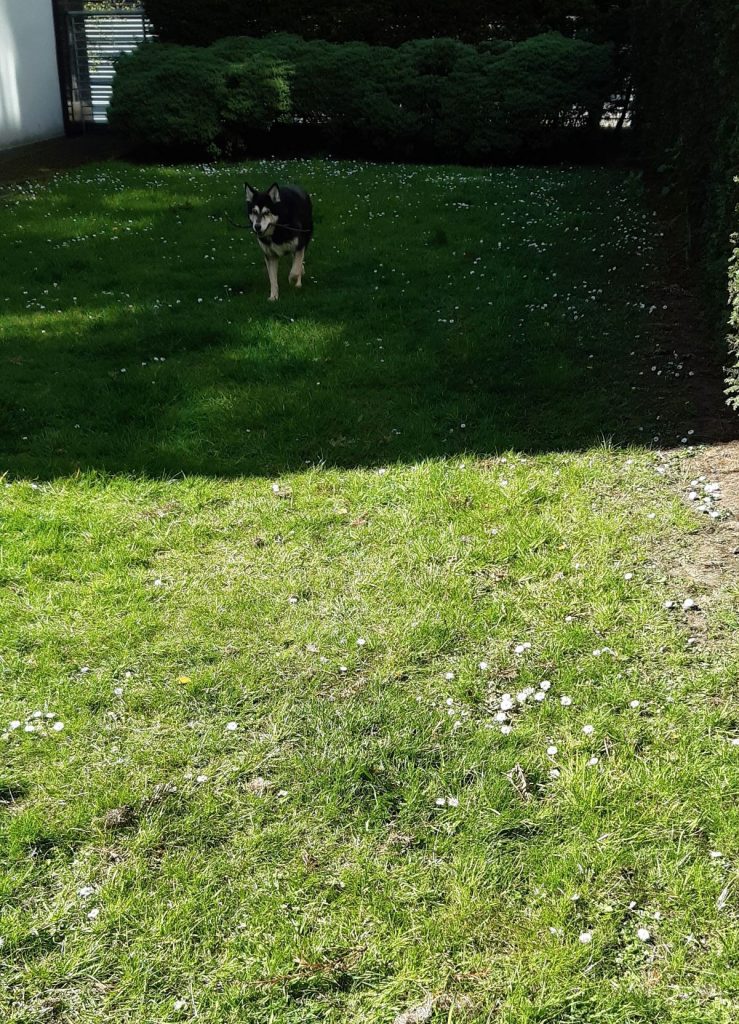Capitalism does not work.
It relies entirely upon endless lies, fantasies, and propaganda to excuse the ways in which it doesn’t work, to convince people that they don’t count. It relies on pretending that humans aren’t a social species that function collectively. It pretends that everyone is an individual without any responsibilities to other individuals, or any right to expect anything from other individuals. Capitalism relies on a constant stream of messaging to convince people that the problems they see around them are caused by literally anything other than the economic system, and that there is nothing that can be done to make the world better.
The wars, coups, death squads, assassinations, and genocides carried out or backed by capitalist regimes? Those aren’t about capitalism, they’re about stopping socialism, which is so evil that it justifies any atrocity.
The people dying because they can’t afford life-saving medicine? That’s just because they don’t work hard enough, or because the evil government isn’t letting us do capitalism hard enough.
Disabled people being unable or barely able to scrape by? That’s not the fault of capitalism, it’s just, you know, “the way of the world”, and for every place that does do it better, there’s some reason why that doesn’t count. What matters is that nothing be allowed to interfere with the endless generation of profit for the richest people in society.
As Mexie says, capitalism does not give a damn about disabled people, and it doesn’t give a damn about anyone else.
Human life comes with risk, and people become disabled for a myriad of reasons. Some are born with disabilities, some are injured, some get sick – it doesn’t matter. Anthropologist Margaret Mead once said that the first sign of civilization was the discovery of the skeleton of a person who had broken their femur, and healed it. An injury like that prevents a person from going out and getting food and water for themselves, and takes longer to heal than any person can go without sustenance. It requires the existence of a society, however small, with the resources and desire to care for those among them who are not able to fully care for themselves. That is, and always has been humanity’s greatest strength. It’s also one of the most essential parts of human nature.
Capitalism relies on the lie that human nature is all about greed, competition, and aggression. That is not what drives civilization, it’s what constantly tries to dismantle it. Every advance we have made in human wellbeing has come from the mass of people working together against those obsessed with competition and power to create a world that’s better for everyone. Capitalism does not give a damn about you, but fortunately those obsessed with capitalism are wrong – it is not an inevitable result of human nature, it is a perversion of it. A better world is possible, and we can move in that direction the same way we always have – by expanding the “tribe”, by pooling our resources and efforts, by caring for each other, and by using our collective power to force change.
Hey everybody, I am once again asking for your assistance. I really need help paying my bills and keeping a roof over my head. Patreon.com is a way for you to help with that, even if it’s just a little bit, and get some perks and extra content in return. You control how much you give, and how long you give it, and every little bit really does help. When lots of people pitch in, it can make a huge difference. Please help if you’re able, and share my work with others. Thank you!












